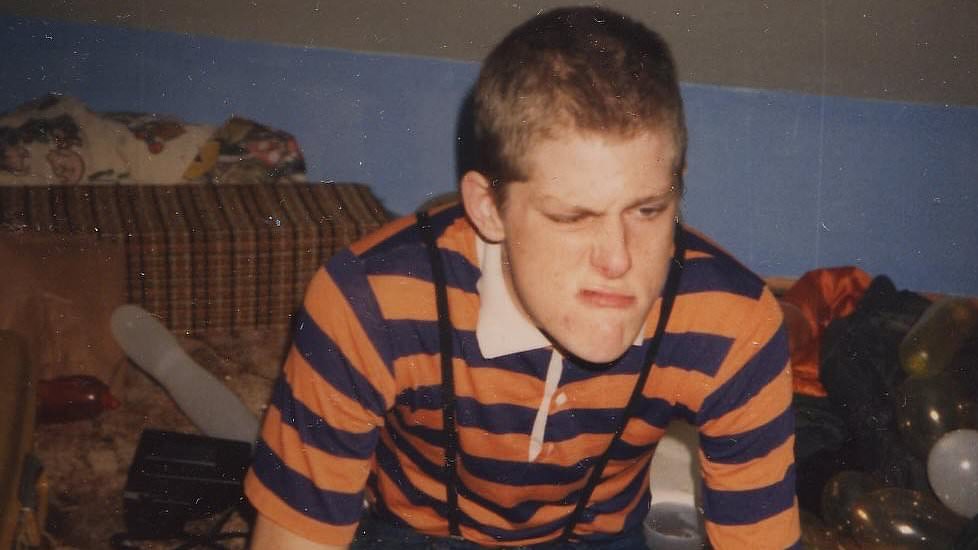Arno Michaelis spent years ensnared by the toxic allure of neo-Nazi ideology, embracing a life of violence and hatred that nearly destroyed him – until everything unraveled.
Now 34, Michaelis reflects on his past, what led him to make mistakes that hurt himself and others, and the pivotal moment that changed everything.
His teenage years, which were marked by feelings of anger, loneliness, and a desperate search for purpose, identity, and belonging. At 16, he thought he had found that purpose, albeit in what he now describes as a ‘fantasy.’
A lifelong fascination with Greek and Norse mythology led the isolated teen to a devastating belief: that he was part of a ‘master race’ under siege – a core tenet of Nazi ideology that, to his mind, mirrored the myths he’d always revered.
‘It told me I was one of the ‘noble few’ standing against dark, corrupting forces,’ Michaelis told Business Insider.
Embracing this newfound sense of identity, Michaelis quickly immersed himself in the world of white nationalism, becoming the frontman of a neo-Nazi metal band in Milwaukee.
‘During that time, I lived in fear and anger, driven by a violent ideology that twisted history into mythology and cast me as a hero in a delusional war,’ he reflected.
But that so-called ‘heroism’ was hollow, he said, calling the life he led toxic to both himself and those around him.
‘Our goal was to spread the ideology through music, to indoctrinate others like I had been. Music became the vehicle for us to feel united and righteous in our hate,’ Michaelis explained.
For years, Michaelis viewed anyone who didn’t look like him as a threat, an exhausting and dehumanizing mindset he now recognizes.
‘Being a neo-Nazi wasn’t empowering; it was exhausting,’ he admitted.
The band, emboldened by their beliefs, carried out brutal attacks – ‘boot parties’ -against those they deemed enemies: people of color, LGBTQ individuals, Jews, punks, and anyone who didn’t fit their narrow worldview.
But even as he, backed by his fellow bandmates, felt he was ‘protecting his race’ something deep inside him felt off.
‘I’d hear a quiet voice inside asking, ‘What are you doing? This guy didn’t do anything to you. You don’t even know him.’ But I didn’t have the courage to listen,’ he recalled.
By the mid-1990s, Michaelis had become an alcoholic, disillusioned and increasingly repulsed by the life he was leading.
‘I was going through life in fear and hate of everyone who didn’t look and think like me – and I hated it,’ he said.
In 1994, Michaelis reached a turning point.
His relationship with the mother of his child ended, leaving him a single parent to an 18-month-old daughter.
Shortly after, a close friend was fatally shot in a street fight.
‘By then, I’d lost count of how many friends had been incarcerated,’ he told Business Insider.
‘It finally hit me that if I didn’t leave, prison or death would take me from my daughter. That was the push I needed, so I walked away.’
What followed was a journey of personal transformation. A year-and-a-half later, Michaelis found himself at 4 am on the South Side of Chicago, dancing with 3,000 people from every race, ethnicity, and background – an experience that marked a dramatic turning point.
‘That’s when I knew I was free,’ he said. ‘I realized something profound: what I had been searching for all along – belonging, joy, connection – wasn’t found in hate. It was in community.’
Today, Michaelis dedicates his life to helping others escape the grip of extremism through his work with Parents for Peace, an organization that supports individuals caught in hate-based ideologies.
‘We support individuals on their journey – whether they’re questioning, struggling, or still deeply entrenched – and we guide families trying to reach a loved one,’ he explained.
Looking back, Michaelis speaks with deep regret for the harm he caused but is focused on the work ahead.
‘I live with deep regret for the harm I caused, but I know I can never undo it. What I can do is work to prevent more pain. And in doing so, I’ve found a life I never thought was possible: a life without fear, anger, or hate.’
